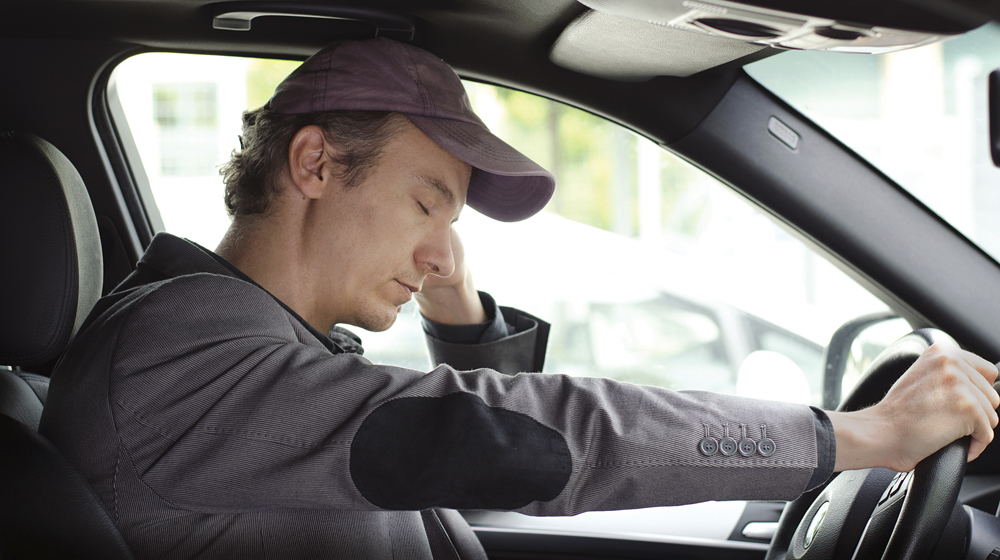What if you could be fined or lose your licence for driving tired? Our new study just published in Nature and Science of Sleep has found if you had less than five hours of sleep last night, you are just as dangerous as a drunk driver.
We know about 20 per cent of all vehicle crashes are caused by fatigue. Over the past 20 years, the number of crashes caused by alcohol has decreased significantly.
However, there has been little progress over this same period in decreasing the number of crashes caused by fatigue. We wanted to know – can this be changed?
Read Also

Trade uncertainty is back on the Canadian national menu
Even if CUSMA-compliant goods remain exempt from Trump’s new tariffs for now, trade risk for farmers has not disappeared, Sylvain Charlebois warns.
Recent decreases in alcohol-related car crashes have happened for a few reasons, mainly public education, strong enforcement and high-profile legal repercussions.
Additionally, drivers are legally deemed to be impaired if their blood alcohol concentration is over 0.05 per cent, regardless of their driving performance. This blood alcohol limit is an effective “line in the sand”, determining whether someone is legally permitted to drive.
We did a study to see if we could reduce the number of fatigue-related crashes on roads by following a similar strategy. Is there a point at which we could deem a driver to be impaired due to fatigue?
To do this, we evaluated the scientific evidence from laboratory and field studies that looked at how much prior sleep you need to drive safely.
After synthesising the findings of 61 unique studies, we found having less than four to five hours of sleep in the previous 24 hours is associated with an approximate doubling of the risk of a vehicle crash. This is the same risk of a crash seen when drivers have a blood alcohol concentration of 0.05 per cent.
Not only this, but a driver’s risk of a crash significantly increases with each hour of sleep lost the night before. Some studies even suggested that when a driver had between zero and four hours of sleep the previous night, they may be up to 15 times more likely to have a crash.
Our review suggests that based on the scientific evidence, it may be reasonable to require drivers to have a certain amount of sleep before getting behind the wheel. If we were to align with the degree of risk considered acceptable for intoxication, we may consider requiring a minimum of four to five hours of sleep prior to driving.
However, we must consider more than just the scientific evidence. For the most part, drinking alcohol is something individuals choose to do. Many people cannot decide to get more sleep – for example, new parents, shift workers and people with sleep disorders.
Not only that, but for fatigued driving to be regulated, there would need to be significant public support.
We must also consider how such a law would be implemented. There is no current way to evaluate fatigue at the roadside. No breath test or blood test that can evaluate how much sleep you have had or how impaired you are. As a result, regulating fatigue would likely need to happen in the event of a crash. Was the driver impaired due to fatigue at the time, and are they therefore legally responsible?
We are consulting with a range of community members and road safety stakeholders on what the next step might be for regulating fatigued driving. Preliminary findings indicate that at the very least, more specific public education and guidance for drivers on how to avoid driving while fatigued would be welcomed.
For example, easy-to-follow advice on how to decide whether you are too fatigued to drive would likely be well received.
While society might be a little while off legislating how much sleep to get before getting behind the wheel, we suggest keeping the amount of sleep you’ve had in the previous 24 hours in mind. If you’ve slept less than five hours, you probably shouldn’t drive.
– Madeline Sprajcer is a lecturer in the College of Psychology at Central Queensland University. Drew Dawson is an internationally recognized expert on sleep and fatigue research, and Central Queensland University’s director of research development.















